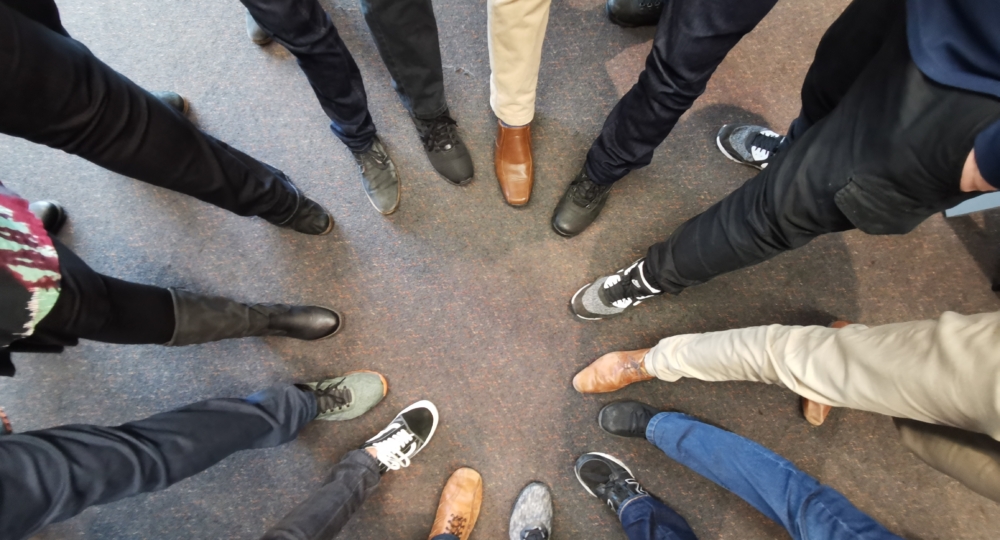Psychological safety describes people’s perceptions of the consequences of taking interpersonal risks. It’s an idea from the 1960’s that was picked up again in the 90’s, and now it’s become trendy again.
There are some interesting key words there to pay attention to. Perceptions. Consequences. Interpersonal risks. Interesting!
Is it like marriage?
As a marriage counsellor, I listened to a husband’s story. I could easily empathise with his version of events and see how his wife caused significant issues in his marriage. Of course, I knew what was coming next. I had a session with her to fill in the picture before meeting with them both, and guess what? She also had a very convincing version of events.
If psychological safety in the workplace is about people’s perceptions of the consequences of taking interpersonal risks, then it’s definitely a nod at the same complexity found in significant relationships like marriage.
Think about it. We spend a lot of time with the people we work with. They become like friends or even actual friends. We see them more than our actual friends and potentially spend more time negotiating and brainstorming with them than we do with our significant others! Additionally, we have strong power dynamics and money in the mix.
These relationship dynamics are important. So whose job is it to create this safety in the workplace? I think it’s tempting to think it’s on the workplace and then look around and say it’s up to ‘them’, whoever the heck that is. Tempting to lay all blame on those people who make you feel unsafe. Here’s a challenge. It’s a cultural issue, meaning we are brewing in it, and contributing to it. We are both a victim of what exists and powerful to create our own perceptions.
Imagine this…
Your ideas are undermined and not taken seriously. You tell yourself you are not valued. You stay quiet and slowly become disengaged. It’s their fault for not listening. Not my circus not my problem. A gross but understandable response.
Perhaps there’s another way to respond to this interpersonal risk you have taken.
Let’s go again. You present the ideas, and they are shot down. You try again, same result. Okay, you decide this person, and this time and place isn’t the best for sharing the idea. Maybe the idea wasn’t good, but you know you did what you felt was right, by raising it, and you can feel proud for doing that. You tuck the idea away to reflect on and see if maybe you were wrong or, if it would be appropriate to raise later. You feel good that you gave it a crack, and gently allow yourself to reflect and learn on this experience.
What can I do?
You can place your own internal boundaries to guard your enthusiasm and self-worth even in an average work culture. It is harder though, and the flipside is also true. A workplace, as a collective, can behave in a way that makes interpersonal risk-taking easier and safer, and this makes it easier on the individual.
My work as a counsellor has made me biased. Hours of sitting with individuals with the only power being in the hands of myself and my client has taught me to shape conversations towards personal responsibility. What can YOU do in your environment? You can usually only influence, in small way, those around you. However, you are very powerful over your own thoughts and behaviours.
So, what can YOU do to increase your own sense of psychological safety for yourself AND for those around you?
I’ve reframed some survey questions that are designed to measure perceived organisational support to make them personally actionable.
Me taking responsibility for my own headspace:
I take pride in my own accomplishments at work.
I know some people here care about my accomplishments.
I know some people here care about my work satisfaction.
I know some people here help make my job as interesting as possible.
I know this workplace is willing to extend itself in order to help me perform the best of my ability.
Me actively contributing to a physiologically safe work culture:
I care about others’ well-being.
I acknowledge others’ accomplishments at work.
I care about others’ sense of satisfaction at work.
I help make others’ jobs as interesting as possible.
I can see and work to minimise the power dynamics I have in my role.
I extend myself to help others perform in their jobs.
What’s your challenge in all this and what are you going to do about it?


Add a comment: